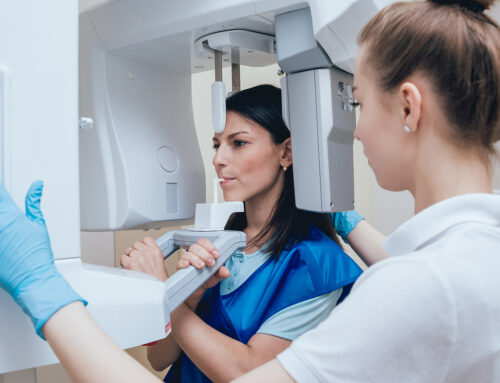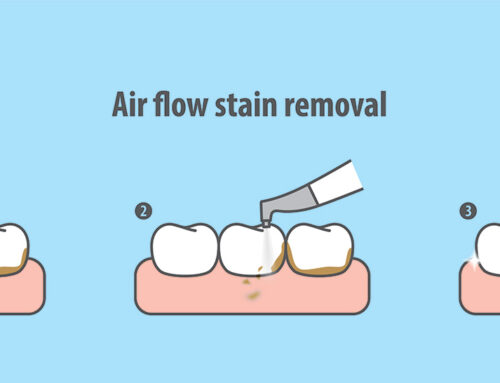Are You a Good Candidate for Dental Implants?
In recent years, dental implants have revolutionized dentistry, providing a reliable and long-lasting solution for individuals with missing teeth. Yet, are dental implants suitable for every individual? Whether you lost a tooth due to decay, injury, or periodontal disease, we can help you with dental implants at Huntington Bay Dental.
This article will explore the aspects that tell whether you are a good candidate for dental implants. We’ll also discuss what makes an individual a bad candidate and what an alternative option is for those who can’t have traditional implants.
What Exactly Are Dental Implants?
Before discussing who is a good candidate for dental implants, we want to briefly detail what dental implants are. Dental implants are replacement teeth made with titanium placed inside an individual’s jaw as a foundation or removable feature for broken or decayed teeth.
Common dental implants include crowns and bridges. Typically, dental implants are made to match the color of your teeth and look natural because they are custom-fitted.
Are You A Good Candidate For Dental Implants?
Besides consulting with your dentist, a few factors help to decide if you’re a good candidate for dental implants.
Individuals With A Missing Tooth Or Teeth
Individuals with a missing tooth or teeth are excellent candidates for dental implants because of their many advantages.
As you know, dental implants provide a permanent and natural-looking solution for tooth replacement, enhancing the mouth’s appearance and functionality. The surgical placement of a dental implant prevents bone loss and ensures stability, allowing patients to eat, speak, and smile confidently.
Dental implants do not affect adjacent teeth, preserving their integrity, and offering long-term durability, making them an ideal choice for those seeking a lasting solution for their missing teeth.
Individuals With Good Bone And Gum Health
Individuals with good bone and gum health are excellent candidates for dental implants because of the strong foundation they provide. Dental implants require healthy jawbones to integrate securely and support artificial teeth effectively, and if you have good bone and gum health, you’re a shoo-in.
When bone and gum health are in good condition, the risk of implant failure diminishes significantly. After the procedure, you’ll likely experience improved stability and functionality with your new teeth without worrying about the implants needing to come out.
Maintaining good bone and gum health ensures long-term success, allowing you to enjoy a confident smile and enhanced oral well-being for years.
Those Who Don’t Smoke
If you smoke or use tobacco products, you may not be a good candidate for dental implants due to the connection between your oral health and overall well-being.
Unfortunately, smoking can heighten the risk of improper fusion between the implant and the jawbone, jeopardizing the success of your procedure. In addition, if you’re a smoker, you may experience delayed healing after the dental implant.
Due to this, tobacco users need to consider alternative tooth replacement options to ensure the best possible outcome for their oral health. Our team at Huntington Bay Dental can help you with these options.
Individuals Who Are Committed To Aftercare
Successful dental implants require proper aftercare and maintenance. This means those wanting dental implants must be willing to follow post-operative instructions diligently, attend regular dental check-ups, and practice excellent oral hygiene at home. By adhering to these measures, you will surely enjoy the long-term success of your dental implants.
Who Isn’t A Good Candidate For Dental Implants?
Now that you know who is a good candidate for dental implants, learn more about those who should not go the traditional dental implant route.
Those Who Have Experienced Bone Loss
Bone loss can occur for various reasons, making it challenging to support implants. Severe bone loss may render you ineligible for immediate implantation.
Since implants are placed into the jawbone, you need to have enough bone density and volume for stability; otherwise, you will encounter loose implants and other adverse effects. Ultimately, the condition of your jawbone is crucial in determining your candidacy for dental implants.
However, modern techniques like bone grafting can regenerate bone, making many with bone loss suitable candidates for implants. Your dental professional will consider these options alongside your jawbone health to determine the potential for a successful dental implant procedure.
Those With Poor Overall Health or Chronic Conditions
Certain medical conditions and lifestyle habits can affect the success of dental implants. For example, individuals with uncontrolled diabetes, autoimmune disorders, or compromised immune systems may have delayed healing and a higher risk of implant failure.
That’s why a comprehensive medical evaluation is necessary to determine if your overall health and lifestyle may negatively impact the outcome of the dental implant procedure. We can help you with this exam to quicken the experience of getting you a confident smile for life.
Those With Uncontrollable Gum Disease
Patients with uncontrolled gum disease (periodontitis) may not be good candidates for dental implants. Gum disease can sadly lead to the deterioration of the supporting tissues and bone around the implant, compromising its stability and longevity.
Before considering dental implants, treating and managing any existing gum disease is crucial to ensure a healthy environment for the implant to integrate successfully. One of our dentists can help you determine if you should shy away from traditional dental implants and go another route.
What Role Does 3D Imaging Play In Determining Candidacy For Dental Implants?
The advent of three-dimensional (3D) imaging technology has transformed how dental professionals assess a patient’s eligibility for dental implants.
Traditional two-dimensional X-rays can provide valuable information but may not fully capture the jawbone’s condition and surrounding structures. In contrast, 3D imaging offers a comprehensive view, allowing for more accurate assessments and treatment planning.
Cone beam computed tomography (CBCT) is implant dentistry’s most commonly used 3D imaging technique. CBCT scans produce detailed cross-sectional images, enabling dentists to visualize the bone volume, density, and quality with exceptional precision. This valuable information helps determine the ideal implant size, position, and orientation for each patient, reducing the risk of complications during and after the implant procedure.
Thanks to 3D imaging, dental professionals can identify potential challenges in advance, such as insufficient bone or the proximity of nerves and sinus cavities. This information allows them to plan and execute the implant procedure more effectively, improving outcomes.
Is There An Alternative For Those Who Aren’t Good Candidates For Traditional Dental Implants?—Implant Dentures
For individuals with multiple missing teeth or those who have experienced extensive bone loss, implant dentures offer a viable alternative to traditional dental implants. Unlike conventional removable dentures, implant dentures are securely anchored to the jawbone through dental implants.
Implant dentures come in two primary types:
-
- Implant-supported dentures: In implant-supported dentures, a fixed number of dental implants are strategically placed in the jawbone to support a permanent denture prosthesis.
-
- Implant-retained dentures: These dentures use a ball-and-socket mechanism, allowing you to remove the dentures for cleaning while still benefiting from the stability provided by the implants.
Implant dentures provide several advantages over traditional dentures. They offer better stability and eliminate the risk of slipping or shifting during speaking or eating. Moreover, implant dentures stimulate the jawbone, preventing further bone loss and maintaining facial bone structure.
Speak With A Dentist At Huntington Bay Dental Today To Discuss Dental Implants
For many people, dental implants can be a life-changing solution — especially for those with missing teeth. Yet, as you now know, not everyone is an ideal candidate. If you’re considering dental implants, consult a qualified dentist at Huntington Bay Dental, who can thoroughly evaluate your oral health, jawbone density, and overall suitability.
With proper care and implantation, dental implants can offer a permanent and natural-looking solution that enhances your smile and oral health for years to come. So contact us today if you would like a consultation to determine if you’re a good candidate for this procedure.





